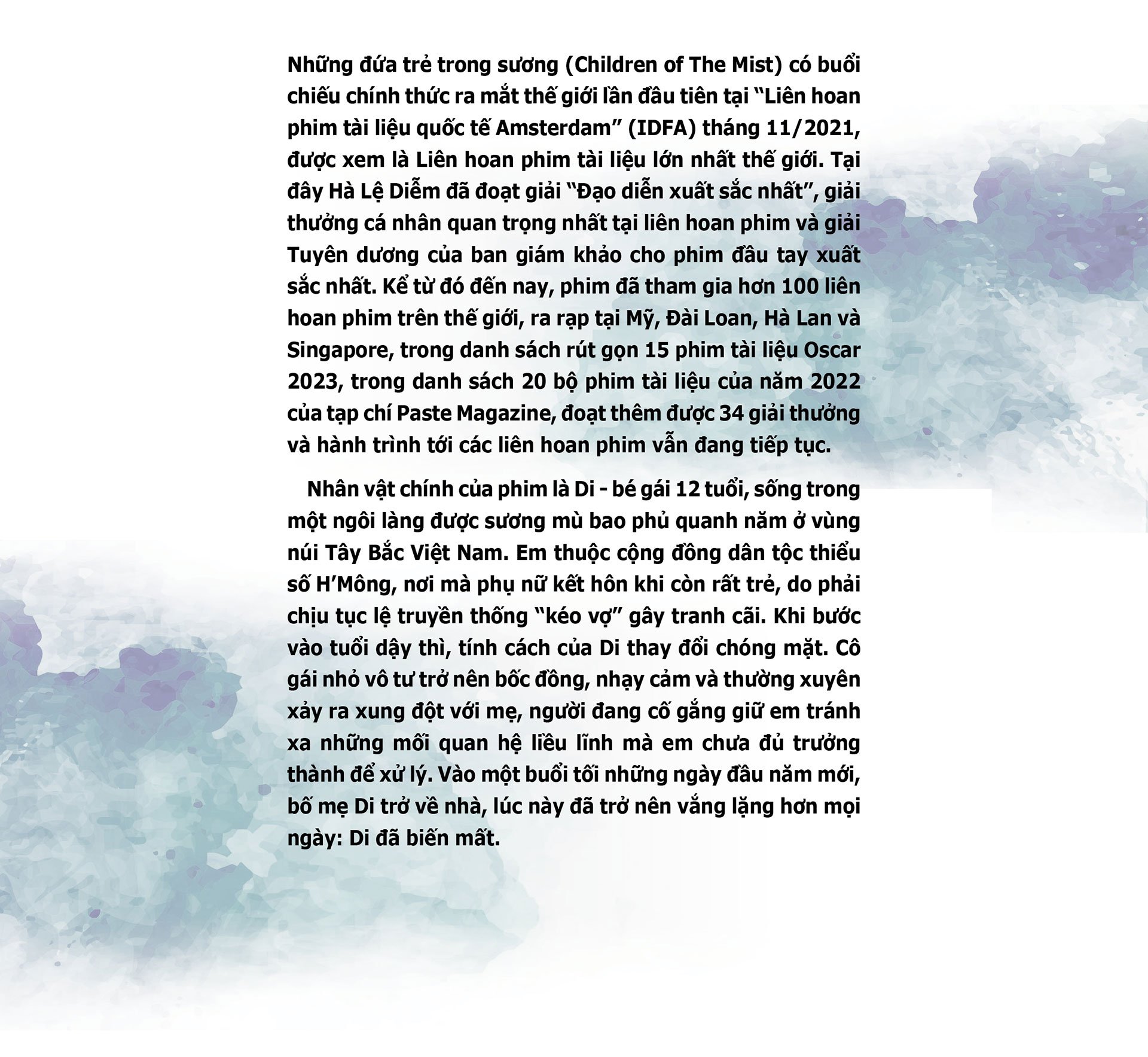
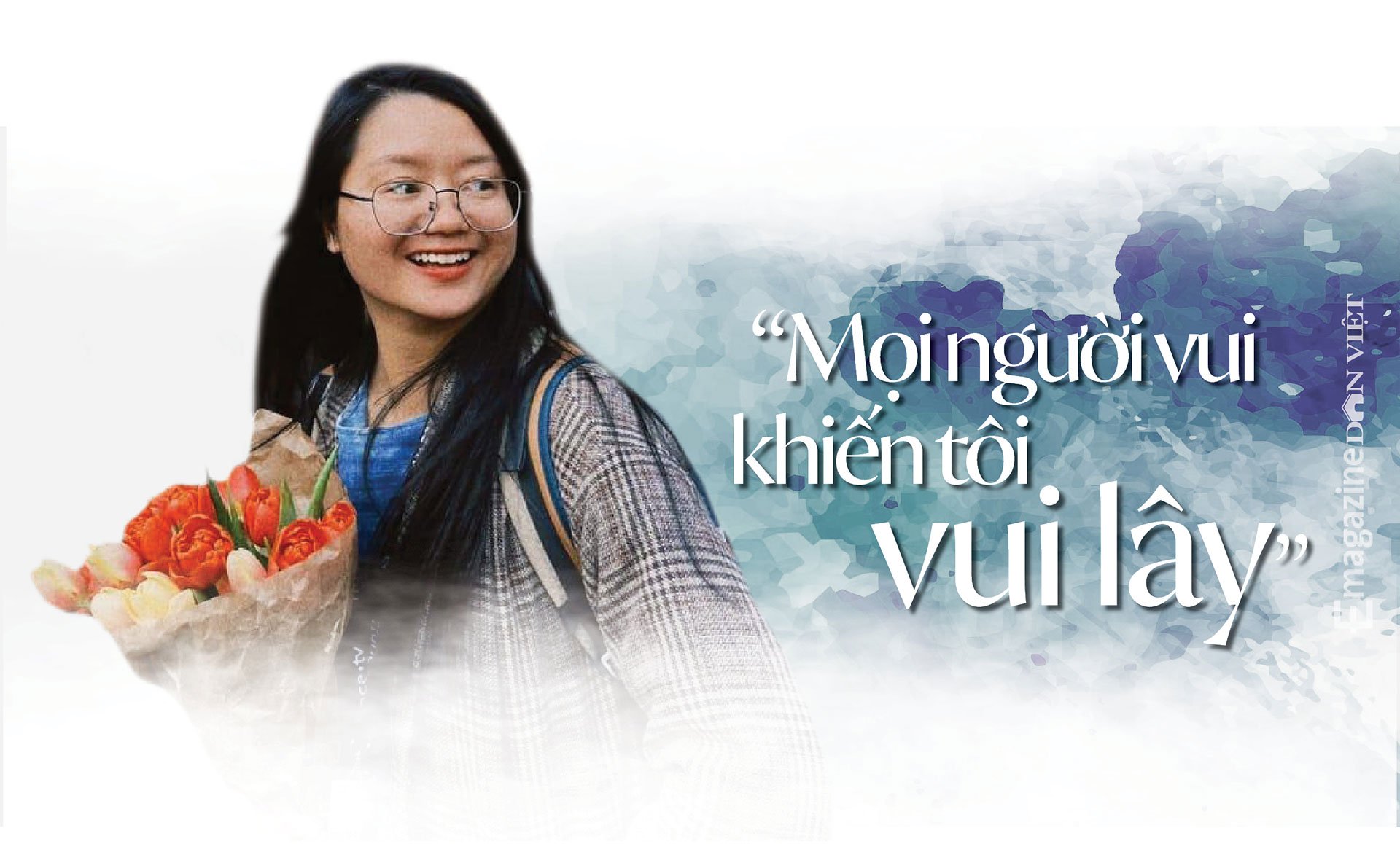
Which film festivals did the film The Children in the Mist go to before reaching the Top 15 for the Oscar? How did this film get to the film festivals?
- The children in the mist have participated in about 100 film festivals. Among them, the DMZ Film Festival in Korea in 2019 is an important film festival with a developing film industry. I was able to participate in the film project market to present. In 2020, I was able to return to Korea when the film was screened.
At the film festivals, I got a lot of inspiration when I had the opportunity to watch many different films, both documentaries and feature films, all of which were the latest films produced in the last 2 years. The latest films in the world that in Vietnam there is no chance to watch due to copyright issues and screening platforms.
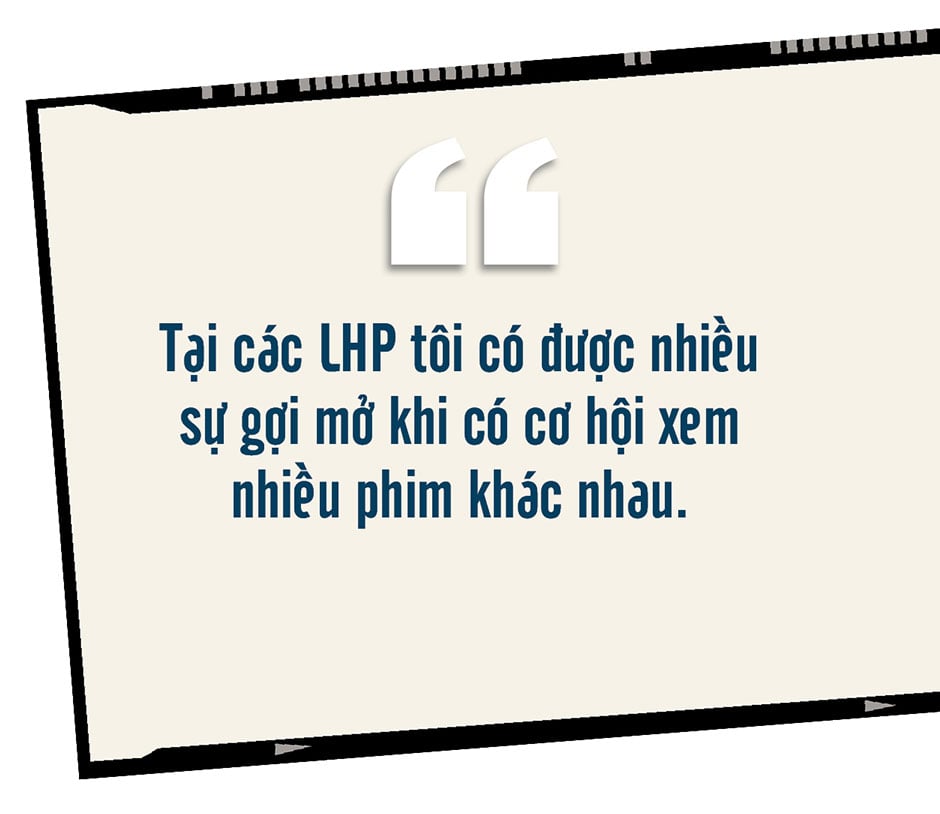
How were the children of the mist born?
- After graduating from university, I followed my Mong friends to do a program with the children in Sa Pa. I saw little Di playing with her friends just like me when I was little. I thought that one day such a beautiful childhood would disappear. I just thought and wanted to make a beautiful film about Di's childhood. In 2018, I also started to hear a lot about the "wife-pulling" custom. Then I learned that 2 of Di's friends were kidnapped and sold to China, so I felt very scared.
What did Ha Le Diem's predecessors say about The Children in the Mist entering the Top 15 for the Oscar? And Ha Le Diem's feelings?
- In Vietnam, my colleagues in the profession have helped me a lot. Director Trinh Dinh Le Minh was the one who helped me before I made the film. When the film achieved this result, he was very happy and surprised because "the film went so far". When I made the film, I just thought about doing it, I didn't think the film would have such a result. Before, I didn't know much about film festivals, but my colleagues, teachers, and producers told me that this film festival or that film festival is very important. I felt … happy when I heard that. It turned out that everyone was even happier than me!
Where and for how long did Ha Le Diem officially study filmmaking? Was Ha Le Diem's official major in university related to filmmaking?
- I studied documentary filmmaking in 2011 at the Center for the Development of Young Cinema Talents (TPD). In 2016, I continued to study the 3-month Varan course in Ho Chi Minh City. I studied at the Faculty of Journalism and Communication, K54, University of Social Sciences and Humanities. I also worked as a journalist for a short time after graduating.
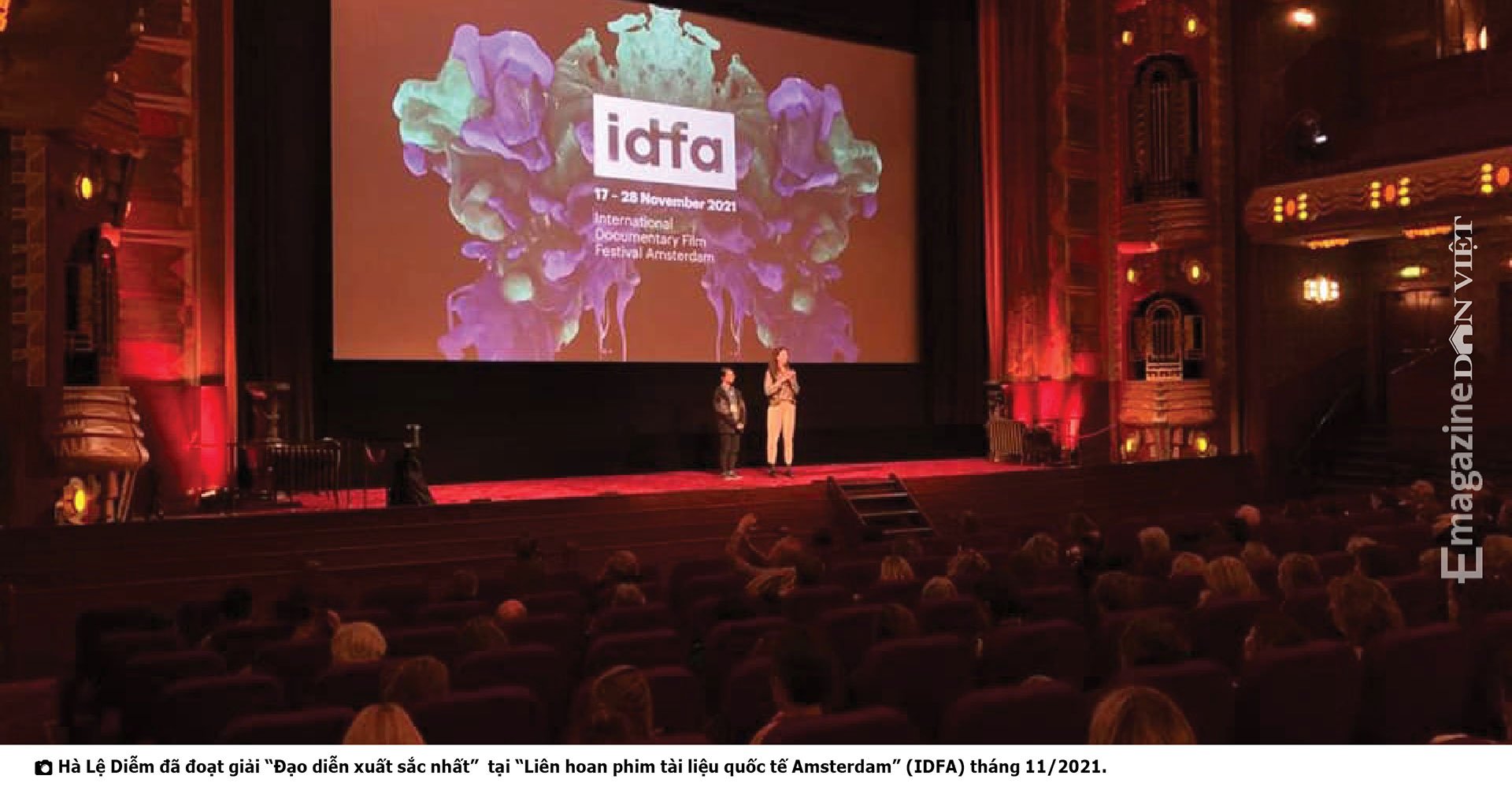
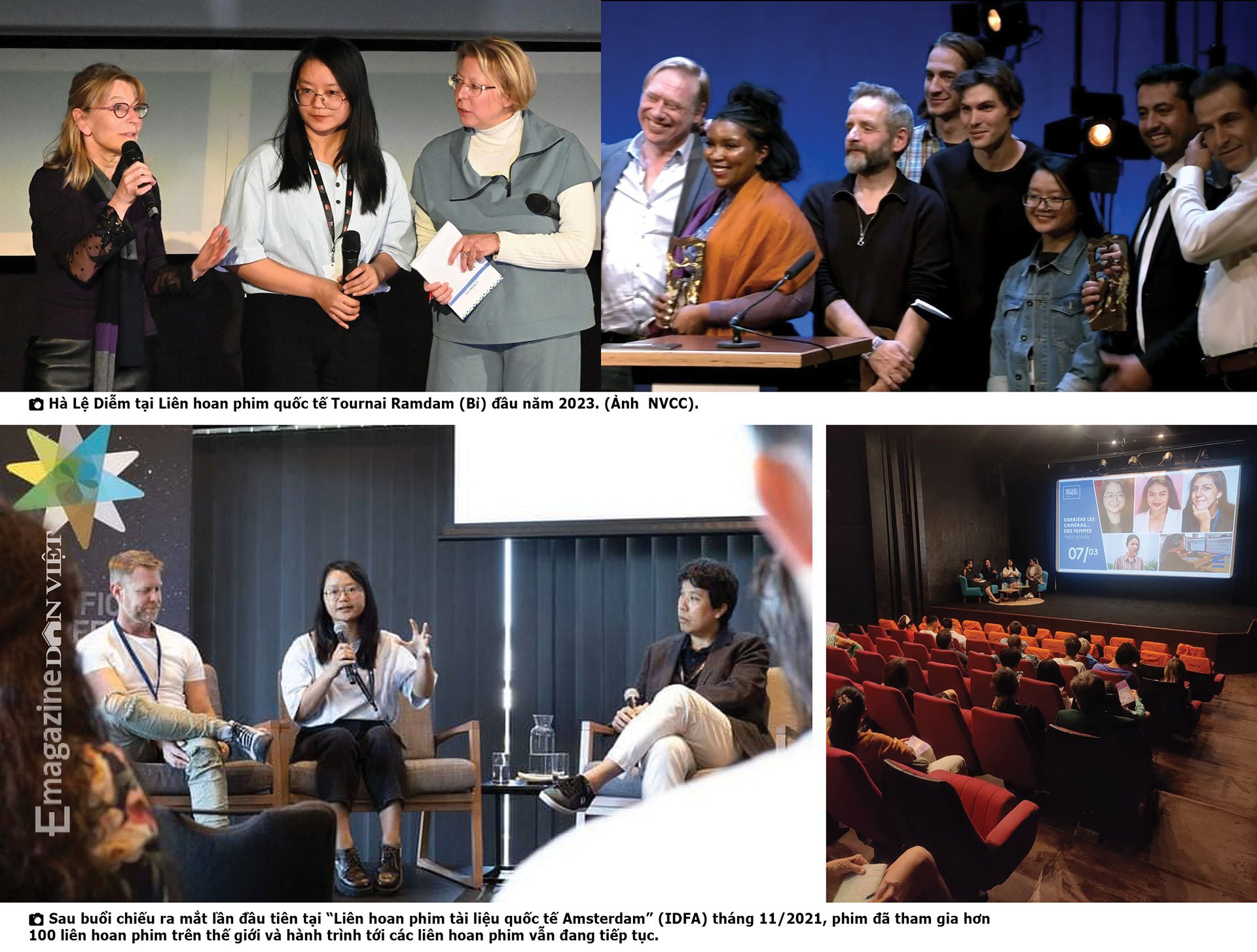
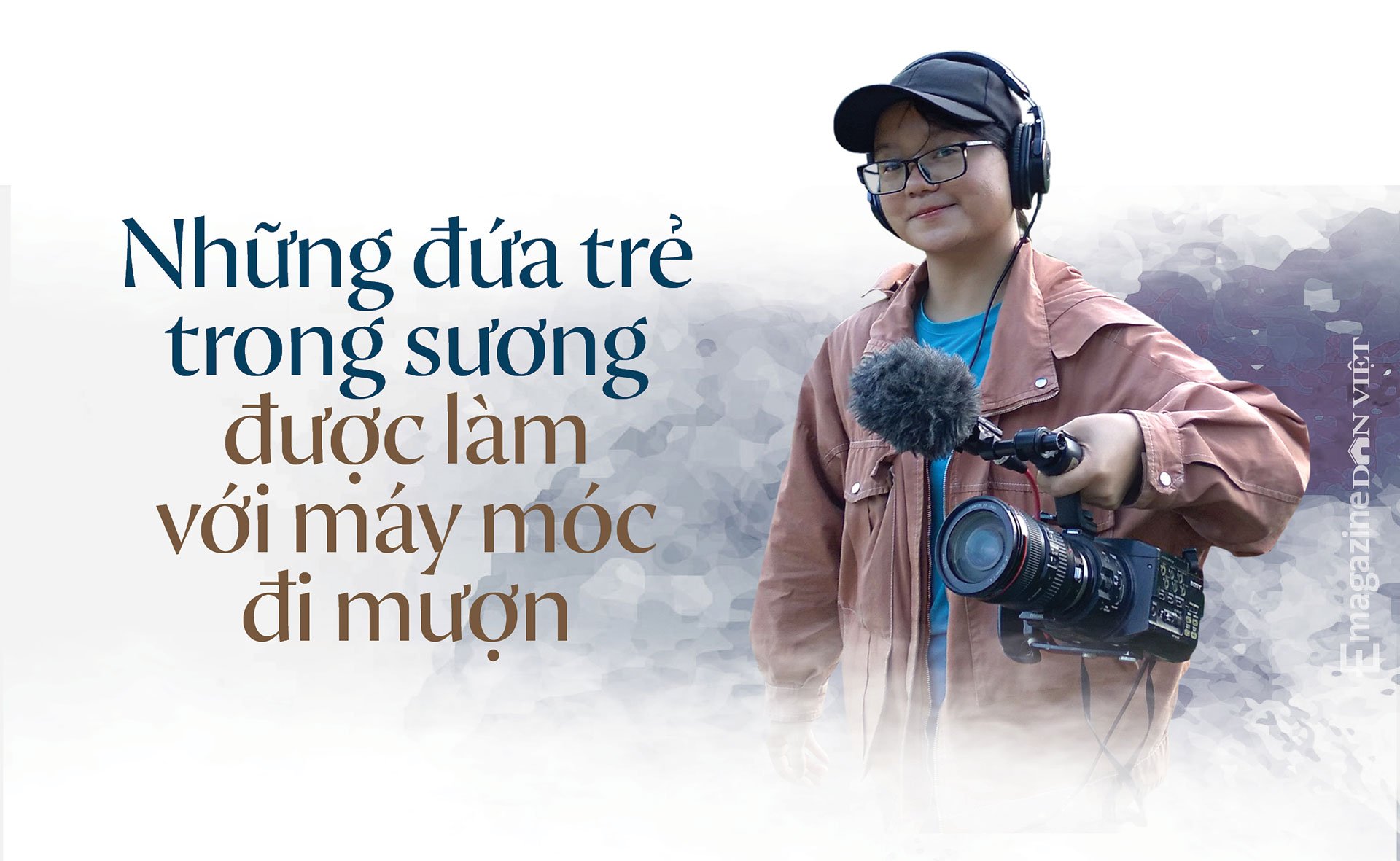
I understand that The Children in the Mist was made with an initial budget of 7 million VND. With that amount of money, how did you make the film qualified for the Oscars?
- In the first 3 years, I received the first 7 million VND for film surveying from TPD. Then I received 6 million VND from Varan for accommodation. The rest was self-funded, using whatever equipment was available and borrowing from friends. I borrowed a tripod from director Bui Thac Chuyen for several years, and only when he needed it to make the film Glorious Ashes did he ask for it back.
After 3 years of filming, Ms. Tran Phuong Thao - the producer of the film told me: "Now your film will not be a film without an editor because there are too many scenes." I have no experience in editing films and it is very difficult to edit my own film. Without money, I cannot edit and the post-production cost of my film is also expensive. So I continued to ask for funding, which was extremely difficult. Then it was enough to do post-production, pay salaries, and send a little back to the characters as living expenses.
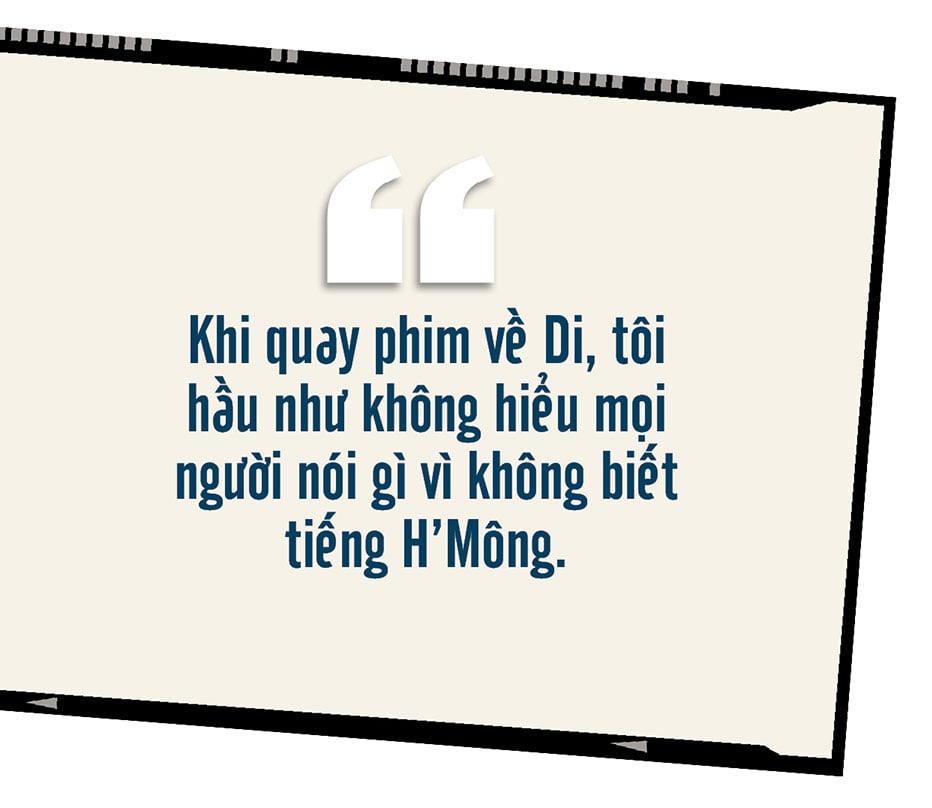
Post-production was very expensive. A fund in Thailand supported the film with more than $35,000 just for sound mixing and color correction. The sound was mainly recorded in Vietnam and then sent to Thailand at the same cost as a feature film. Making Vietnamese subtitles for the film took a long time, 3 months. I had to invite a Hmong friend to Hanoi . When watching the film, everyone will have to read the subtitles because 80% of the characters speak Hmong.
Does Diem make films with a pre-existing script or does she follow the characters first and then create the script? Do the characters feel uncomfortable when their lives and activities are being filmed?
- When I was filming, I told everyone there that I was making a film about Di, everyone was quite relaxed. When I was in Sa Pa, I had to choose times when there were special events like Tet and holidays. I could hardly understand what people were saying because I didn't know the Mong language. After I filmed, Di translated for me what people were saying at that time, whether they were happy or angry. The story of the film was formed while we were working on the editing table.
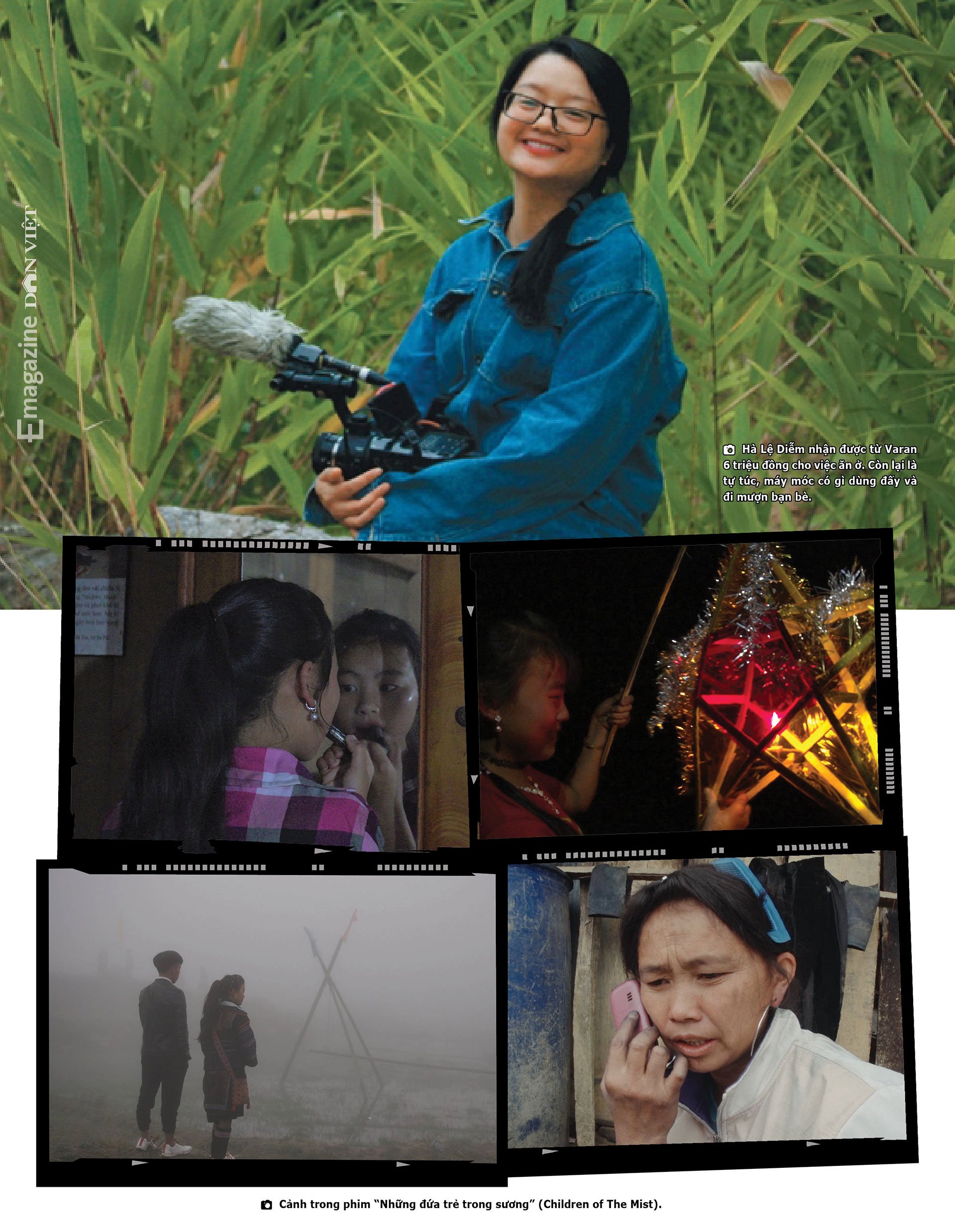
How is Di in the movie living now? Has the movie had any impact on her life?
- Di went back to school and agreed to marry someone else she loved after refusing the "wife-pulling" custom. Currently, Di opened an online brocade shop with her mother. I am happy because Di is very confident. Di makes beautiful brocade products herself, gradually becoming a working, independent woman, and marrying the person she loves. Di's parents are healthy and happy. Di's father actively helps his wife and children. Few people can refuse the wife-pulling custom like Di.
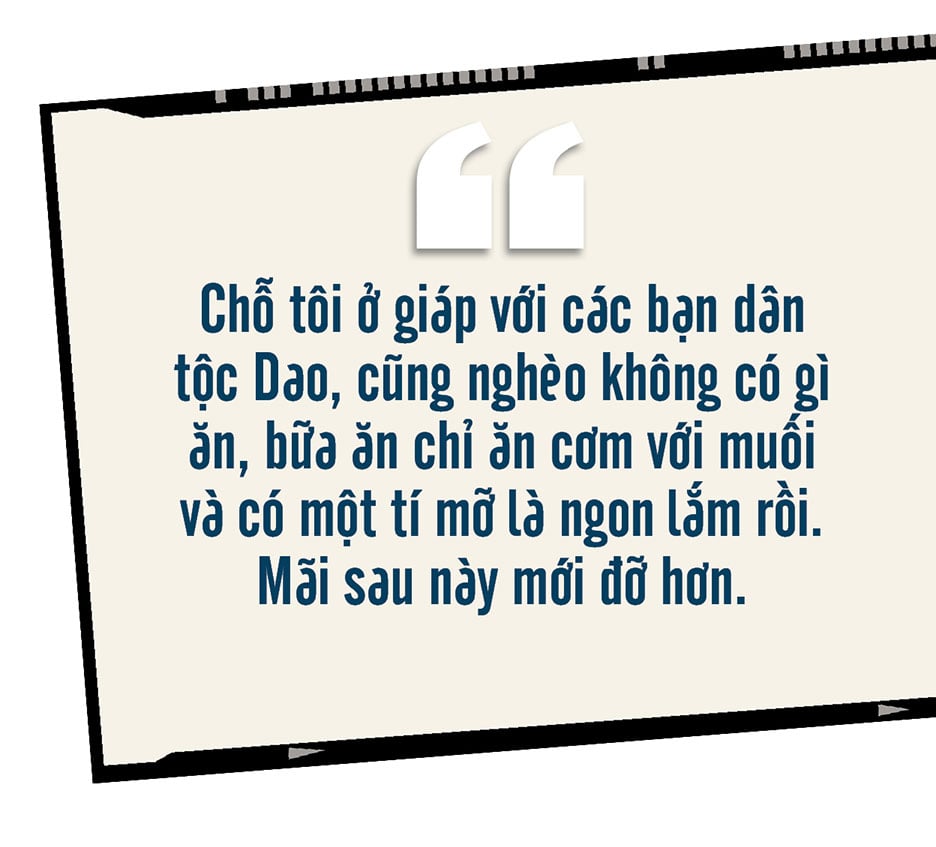
Is Diem's childhood filled with happy or sad memories?
- I am a Tay ethnic in the Northeast, Bac Kan. I was born in 1992. I remember when I was young, my family had a lot of difficulties. It was not until 2000 that the place where I lived had electricity, and before that, we still used oil lamps. My house had a thatched roof and earthen walls. During the summer, I followed my parents to work in the fields very far away, and only returned to school when the school year started. My father carried corn on the field, his shoulders were lumpy, swollen like a camel's hump, and his skin was very painful. I still remember how hard my father suffered. The place where I lived was next to my friends of the Dao ethnic group. We were also poor and had nothing to eat. Meals were just rice with salt and a little fat, which was delicious. It was only later that things got better.
When I was in 9th grade, there were a few friends who were very close to me. One of them had his father die and had to drop out of school because his family had no money. 1 or 2 years later, they all got married. At that time, I didn’t understand what it was like to get married. I just had the feeling that they wouldn’t be able to play with me anymore, that there was something about it that wasn’t as fun as before.
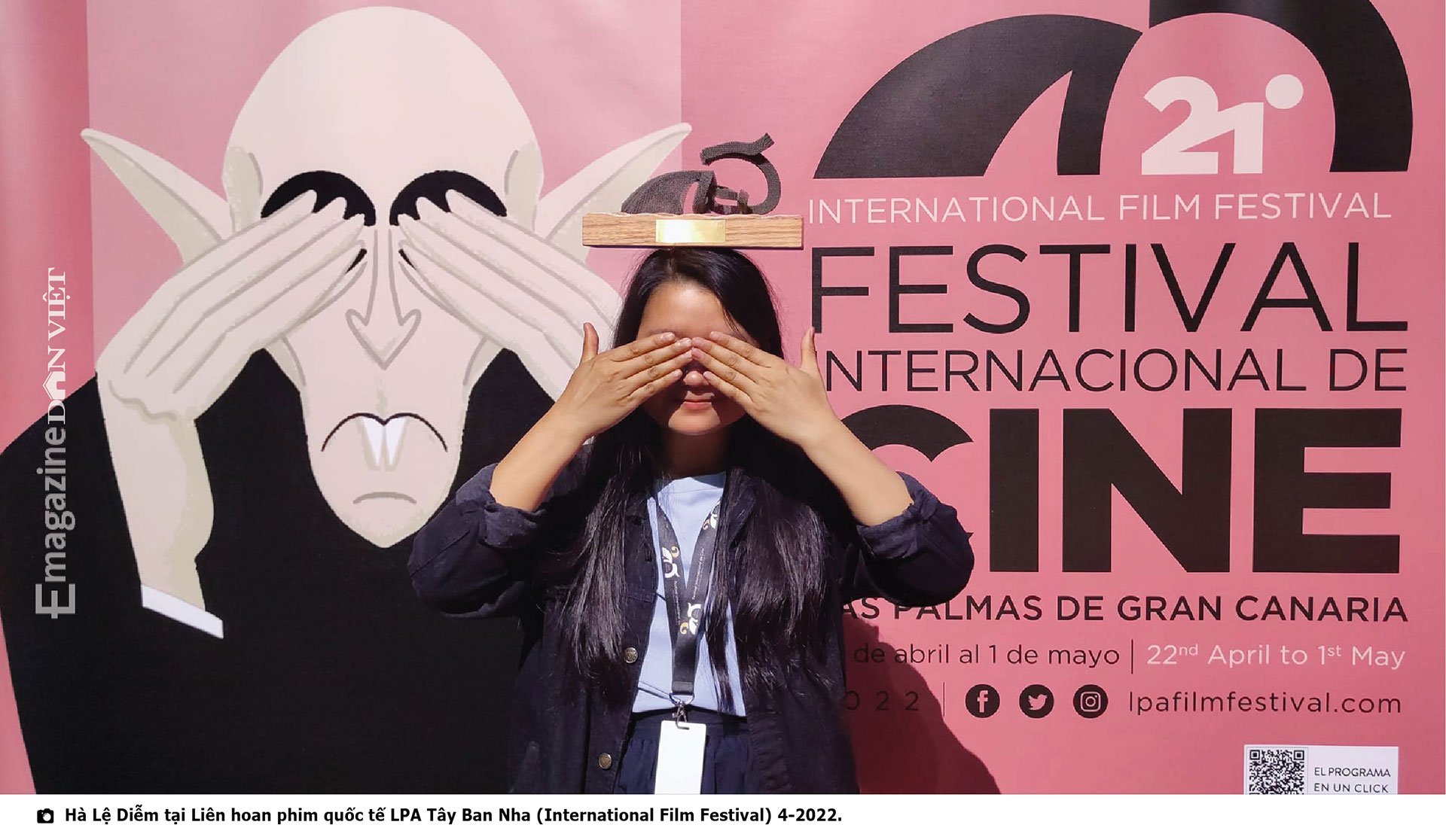
How much effort did Ha Le Diem and her parents have to make to study in Hanoi?
- Studying at university in Hanoi required more effort from my parents than me. At that time, my parents were only farmers, so the cost of more than 2 million VND for me to study in Hanoi was very expensive, even though I lived in a dormitory. My parents had to sell their buffalo and do all kinds of extra work. However, my parents did not complain. My grandfather used to be an elementary school teacher, he also encouraged me, he had a pension so he sometimes helped. My parents said "You have to study, if you don't study now, what will you do?" My mother really wanted to go to school to become a doctor. My grandfather only allowed her to finish high school and then she was not allowed to continue studying, and until now my mother still dreams of becoming a doctor but cannot do it.
I was luckier than other children because my parents sent me to school with the hope that I would get a job. Some other families in my village were very poor, they thought that after their daughters finished school they would just get married and their parents would not be able to help them. But my mother encouraged me to try my best.
Has Diem ever planned to make a movie about her mother?
- Many friends who come to my house to visit, meet and talk to my mother also ask why I don't make a film about her. My mother also likes taking pictures. When she was young, her family was very poor and had to sell firewood to earn money for food, but she also stole money to take pictures. My mother still keeps a photo of her when she was young. She is still very trendy and likes to livestream even though she still has a lisp on some words.
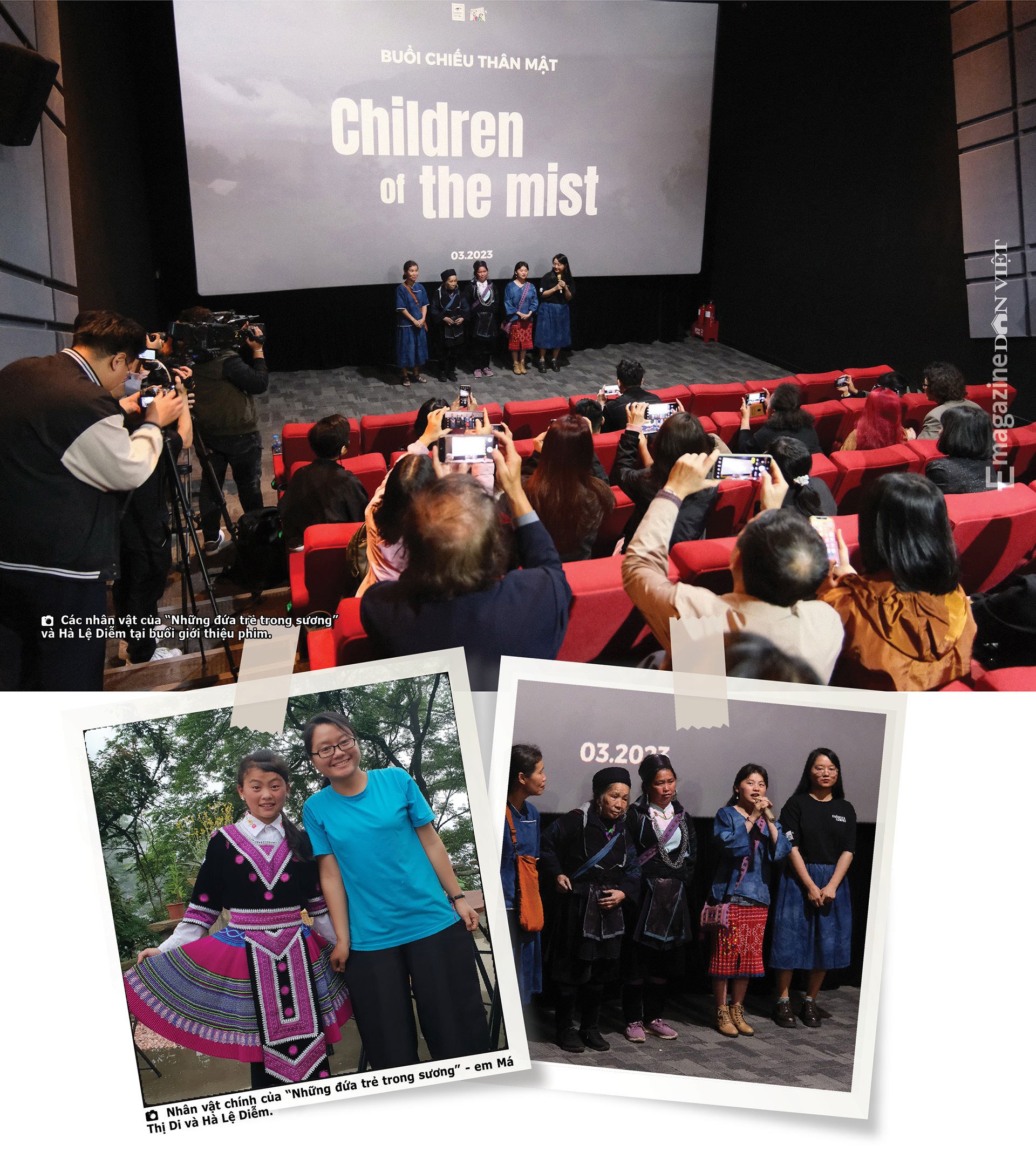
Where does Diem officially work?
- Actually, I work at Varan Vietnam Company. The company has 3 members, it is called a company but we do not have salaries. We have to work on our own to maintain our lives and contribute to pay taxes and maintain the company's operations in the future.
As for movies, I am also working on a project with an idea that I had in mind. After the movie is released, I will have more time. Di is also opening a shop so I want to help her out. I can still do journalism-related work whenever my friends ask me to.
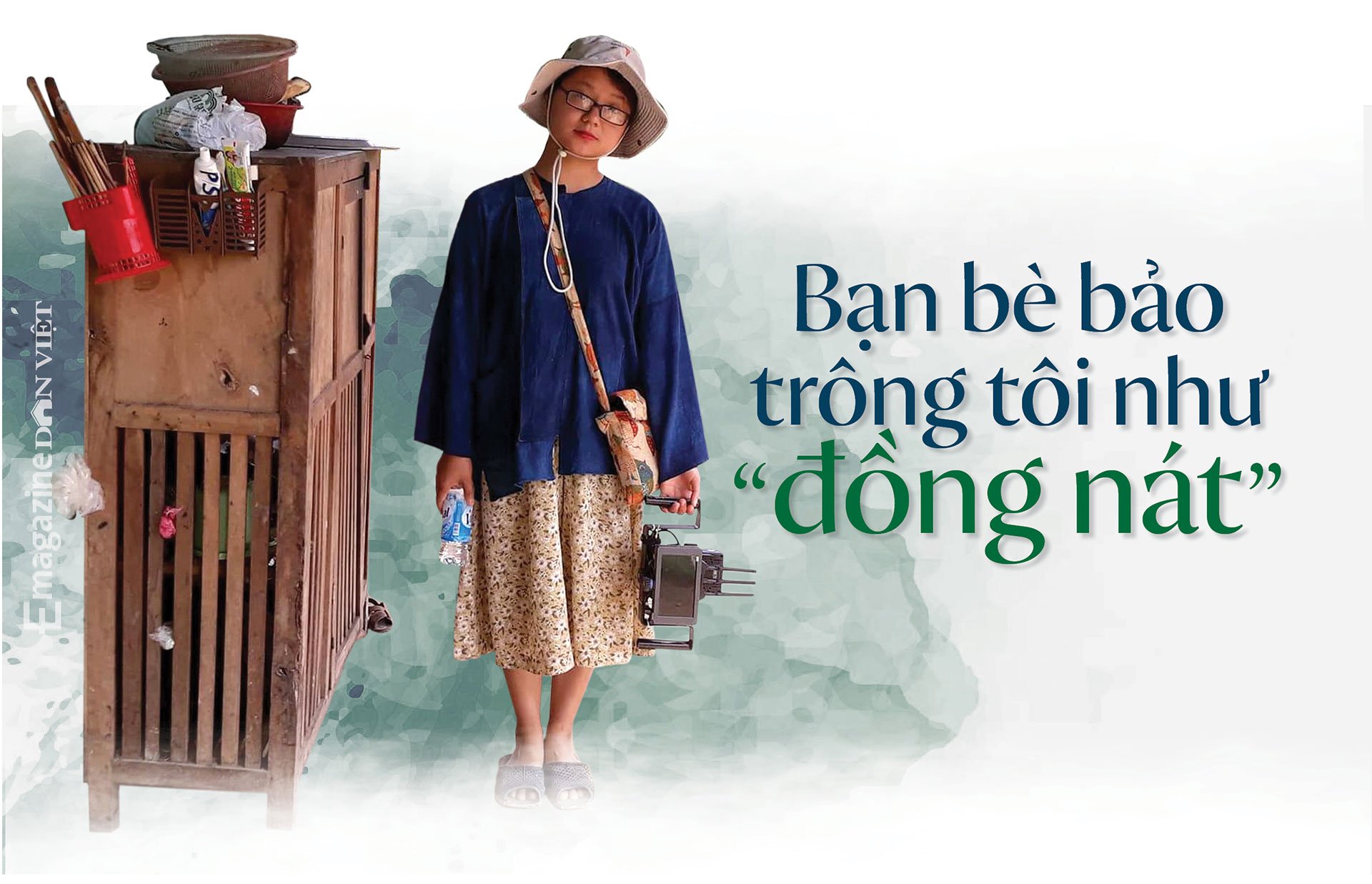
Does Diem want to earn a lot of money like the dream of the little girl Di in the movie?
- I want to earn some money to prepare for illness, mainly for my parents, and my daily living expenses are also cheap. I rent a house with a friend, and I can cook for less than 2 million VND a month. I have not finished the rice I brought from home since Tet... My life is simple, I don't spend much.
I went to film in Long Bien, 30km a day by bike. Sometimes my friend said: "Why are you so useless? Let me buy you some shirts"...
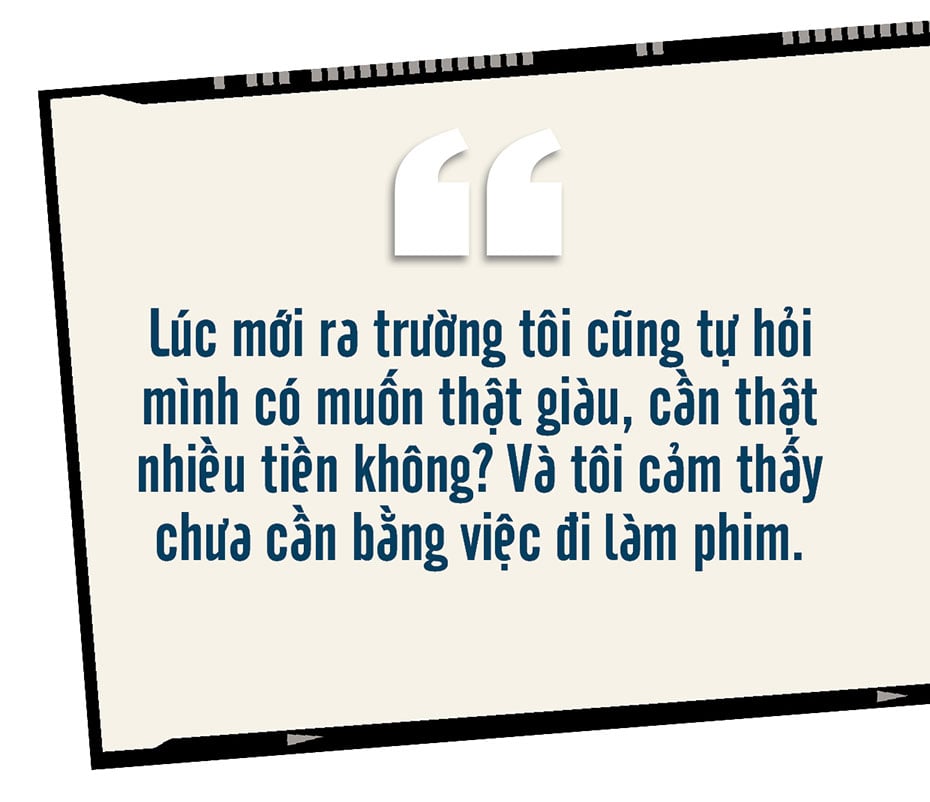
When I first graduated, I asked myself, do I want to be really rich, do I need a lot of money? And I felt that I didn’t need to do that by making movies. I wanted to do what I love and live my own life.
Does the film Children in the Mist being known bring economic benefits to Diem?
- It helps me to some extent, but I still have to earn money in other jobs. The benefits of the film are mainly spiritual and professional. Filmmaking supports my studies, career development and personal development. If I always put too much emphasis on earning money or fame from a film, I will be burdened to the point of not being able to move forward.
Being more well-known, specifically with the film Children in the Mist, helps me avoid being "pressured". People will understand when I explain what it takes to produce a visual product.
There are also distributors who want to buy the film The Children in the Mist. But for the screening costs in Vietnam, we have to rent the theater ourselves, then pay the media costs, … and pay the salaries of the participants to break even.
What we got after the film was me, Varan Vietnam, TPD, the free filmmaking courses became more widely known. The previous costs I spent on making the film were compensated, the money to buy the camera I paid, no debt.
Nowadays, many Vietnamese movies have huge revenue. Does Diem plan to become a feature film director?
- No, I will only make documentaries. I know my limitations, no budget, no time to convince investors. Documentaries are more comfortable and free, the cost of living in Vietnam is also cheap. I can go anywhere and make films about what I like. Feature films have too many rules to follow and have to sacrifice freedom.
Has Diem had any role models that have guided her life?
- I like to follow the example of Mr. Andre Van In, and the teachers and seniors who taught me. Mr. Andre Van In can do his job and connect with others, help others. I admire him very much and wish to become a person like that.
As for film directors, I like Japanese director Koreeda. He made documentaries before making feature films. He sees things and has a very humane way of telling stories in his films.
Diem's plans for the coming years?
- I think it is necessary to learn a foreign language. When I learn a foreign language, I will be able to contact and email film festivals and organizations that want to ask for sponsorship. I want to continue making films. And I want to help Di stabilize her job. I want to earn money to save for the future, for my parents.
Thanks Ha Le Diem for sharing !
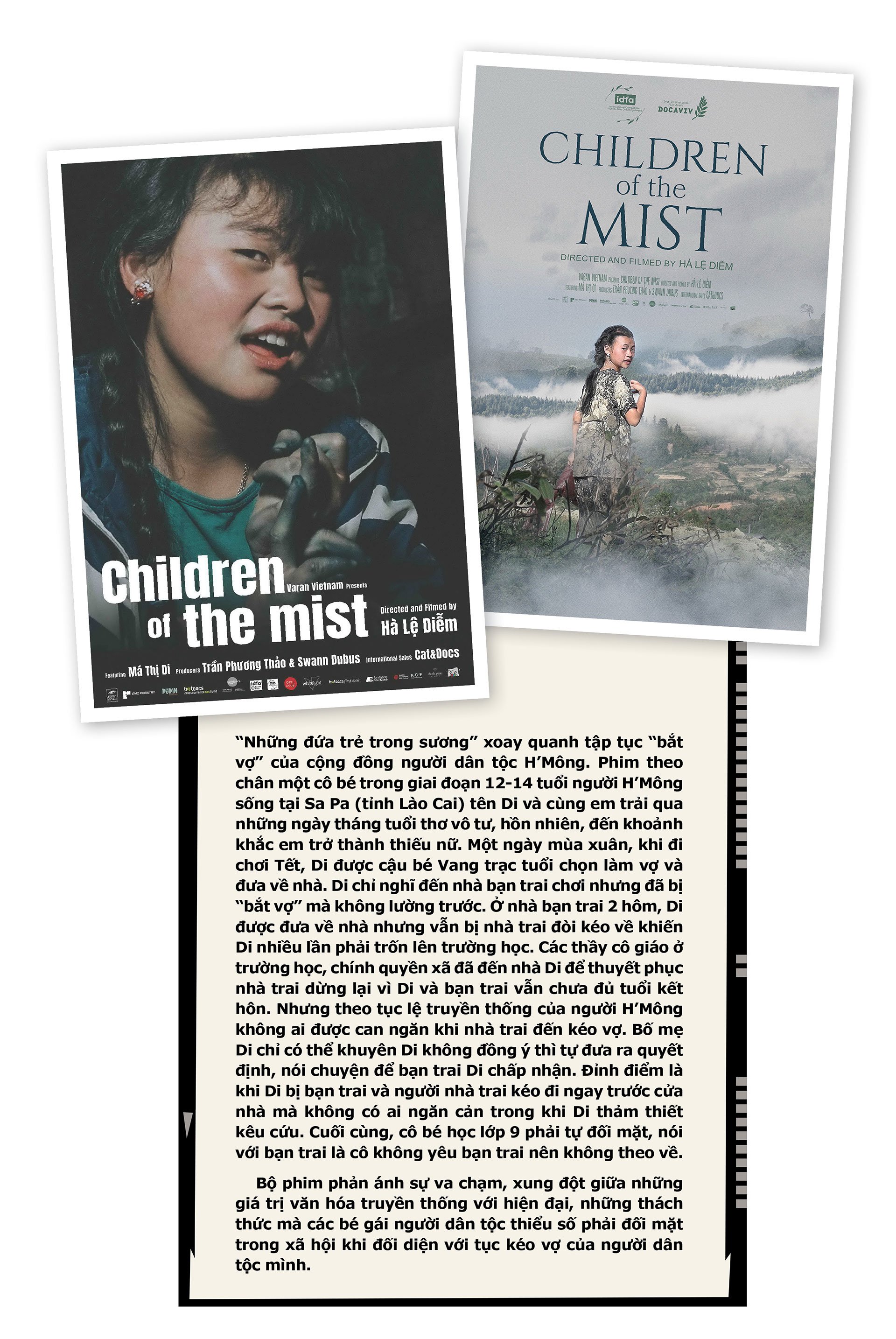
Source




![[Photo] Keep your warehouse safe in all situations](https://vphoto.vietnam.vn/thumb/1200x675/vietnam/resource/IMAGE/2025/10/1/3eb4eceafe68497989865e7faa4e4d0e)
![[Photo] President of the Cuban National Assembly visits President Ho Chi Minh's Mausoleum](https://vphoto.vietnam.vn/thumb/1200x675/vietnam/resource/IMAGE/2025/10/1/39f1142310fc4dae9e3de4fcc9ac2ed0)

![[Photo] Hanoi morning of October 1: Prolonged flooding, people wade to work](https://vphoto.vietnam.vn/thumb/1200x675/vietnam/resource/IMAGE/2025/10/1/189be28938e3493fa26b2938efa2059e)


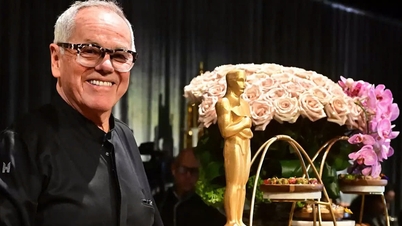

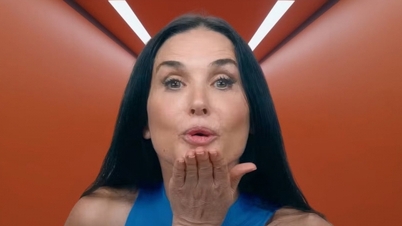




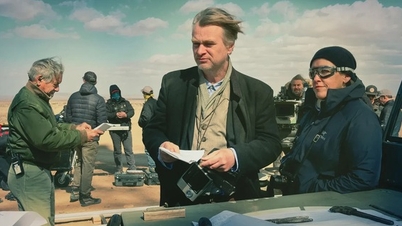


















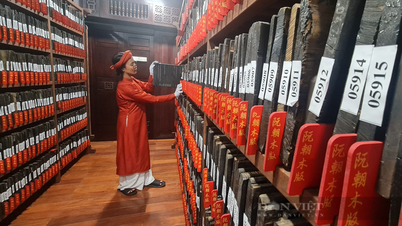
























































Comment (0)